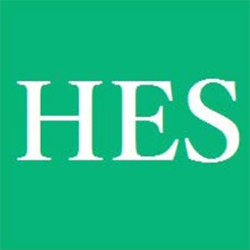Henry VI founded Eton College in 1440 for “25 poor and indigent scholars to learn grammar”. He wanted his subjects to have the opportunities of acquiring knowledge that he had enjoyed, and named William Stokke and Richard Cokkes as the first two boys to have a place.
Classical education in England in the 15th century was in decline and Henry VI sought to remedy that. The boys would be tutored in Latin and Latin alone, with an emphasis on writing verses and learning by heart. The curriculum was expanded marginally when the regular study of Greek was introduced in the early 1600s.
Teaching took place in Lower School. At the west end, the Lower Master (or Usher as he was originally called) would teach the lower Forms, some boys as young as five, which were divided into three groups – Third Form Greek, Sense and Nonsense. From the other end, the School Master would teach the upper Forms – Fourth to Seventh Forms. The work undertaken by boys was largely construing and repetition. Construing meant analysing the grammatical structure of a Latin sentence prior to translating it and repetition was learning by heart the passages read and repeating them back to the master, often the next day. Teaching was by done by dictation, with the boys writing out rules and sentences, and then learning them by heart. On Friday and Saturday, they would be examined on what they had learnt during the week.
Schooling continued along these lines for the next 400 years. Many boys brought their own tutor with them and there were voluntary lectures by visiting speakers and society meetings which would give the boys a broader education, but all other subjects had to be learned outside the classroom and incurred an extra charge. These included art, modern languages, arithmetic and dancing. However as late as the mid-19th century, Latin and Greek were still the only subjects officially taught by the school.
Reproduced by permission of the Provost and Fellows of Eton College.
The first new subject to be added was Mathematics in 1851. The reason stated was that the “demands of both Universities and the Army make it necessary that all Boys should have a competent knowledge of Mathematics before leaving school.” Amid concern to ensure that Classics would not be affected, the school day was extended to enable three hours of mathematics to be included in the timetable.
The real catalyst for the transition to the diverse academic life of Eton today though was the Public Schools Act of 1868. The Public Schools Commission investigated the standards of the education at nine schools. They were not pleased with what they found, and roundly condemned the schools for the quality of their teaching and the facilities provided. The recommendations in their report led to the passing of the Public Schools Act in 1868.
Dramatic changes were made to the timetable of lessons, and importantly the subjects of study. Each boy in the upper Forms had to take up two “extra studies” which he would study for 2 hours a week. The choice included German, Italian, higher mathematics, history, physical geography, chemistry, political economy, logic and comparative philology. All lower boys had to take French. Each of these subjects was not to interfere with the teaching of Classics, and many were even taught by Classics beaks.
The completion of New Schools in 1863 began a programme of the continued erection of classrooms dedicated to different subjects, erasing the memory of days when classes consisted of over 150 boys. Despite these changes, it would not be until the 1960s and the Head Mastership of Anthony Chenevix-Trench that Classics would finally cease to be the most important subject and specialists were appointed to teach subjects such as Geography and English.
Today, Eton aims to provide a curriculum that aspires to develop the whole person and excellence in breadth.
Eleanor Hoare
Eleanor Hoare has been the College Archivist at Eton College since 2013. The archives date from the 11th century onwards and cover all aspects of the college’s history.
You can find out more about Eton College’s archives on their website, blog or on Twitter.


